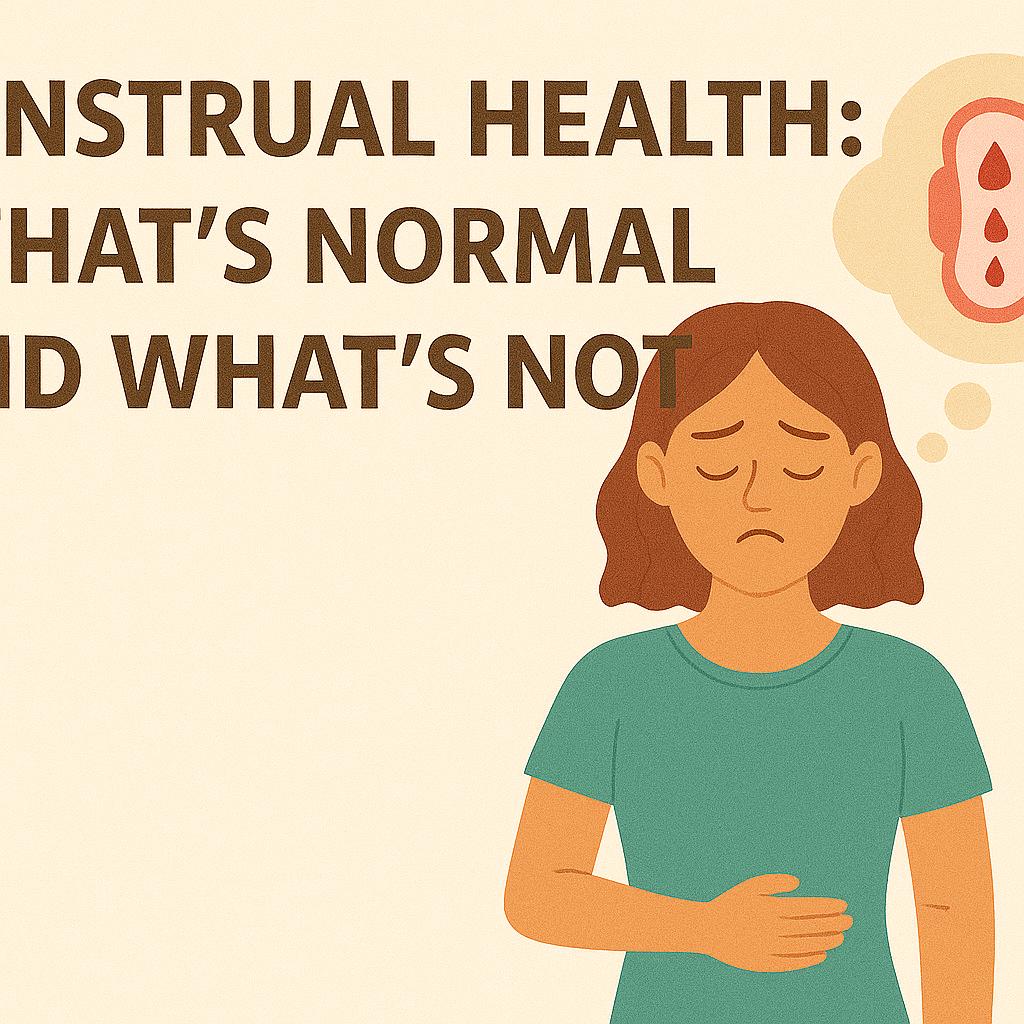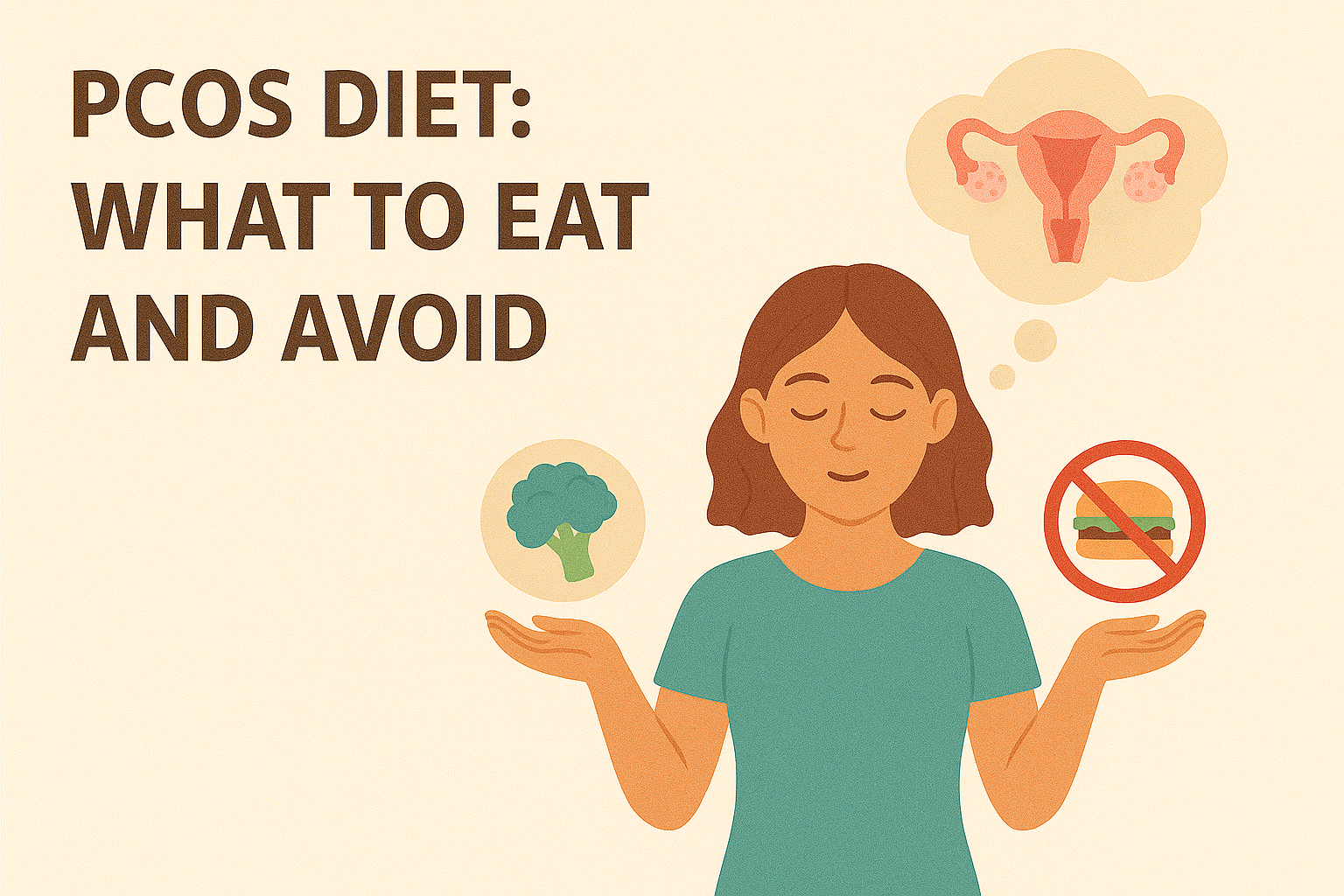
🧠 Introduction: Let’s Talk About Period Health – Honestly
Menstruation is a natural process, yet many women aren’t sure what’s normal and what could be a sign of a deeper issue. Understanding menstrual health is key to overall well-being.
This article breaks down what to expect from your period, common variations, and red flags that should never be ignored.
📅 What a “Normal” Menstrual Cycle Looks Like
A healthy cycle can vary between women, but here’s the general guide:
-
Cycle Length: 21 to 35 days
-
Period Duration: 2 to 7 days
-
Flow: Light to moderately heavy
-
Color: Bright red to dark brown
-
Symptoms: Mild cramps, fatigue, mood changes
✅ It’s okay if your cycle doesn’t match this perfectly — consistency is what matters most.
🔁 Common (Normal) Menstrual Symptoms
Experiencing any of these? You’re not alone — and it’s usually normal.
✅ Typical symptoms:
-
Mild to moderate abdominal cramps
-
Tender breasts
-
Mood swings or irritability
-
Food cravings
-
Bloating
-
Lower back pain
Most of these symptoms are caused by hormonal changes and usually resolve after your period starts.
🚩 What’s NOT Normal in Menstrual Health?
Watch out for these signs — they may signal underlying issues:
❌ Irregular or Skipped Periods
-
More than 3 months between periods (not pregnant)? Get checked.
-
Could be PCOS, stress, thyroid issues, or perimenopause.
❌ Extremely Heavy Bleeding (Menorrhagia)
-
Needing to change a pad/tampon every hour for several hours
-
Passing large clots (bigger than a coin)
-
Period lasts more than 7 days
❌ Severe Cramps (Dysmenorrhea)
-
Pain that interferes with daily activities
-
Doesn’t go away with pain relief
-
May point to endometriosis or fibroids
❌ Bleeding Between Periods
-
Spotting unrelated to ovulation or contraception?
-
Could signal infection, hormone imbalance, or more serious conditions
❌ Foul Odor or Unusual Discharge
-
Strong smell or odd color may mean infection (like bacterial vaginosis)
👩⚕️ When to See a Doctor
If you notice any of the following, seek medical help:
-
No period for 3+ months (not pregnant)
-
Periods that are too frequent (<21 days)
-
Sudden change in flow or pain
-
Signs of anemia (fatigue, dizziness from blood loss)
-
Intense PMS or emotional distress
Your cycle is a vital sign of health — treat it like one.
🌿 How to Support Menstrual Health Naturally
✅ Try these tips:
-
Eat iron-rich foods during your period (spinach, lentils, eggs)
-
Stay hydrated and reduce caffeine
-
Exercise gently — yoga, walking, stretching
-
Track your cycle using apps like Clue or Flo
-
Use heat pads for cramps
💡 Myth-Busting Menstrual Health
❌ Myth: Irregular periods are always dangerous
✅ Truth: Occasional irregularity is normal, especially in teens or during stress
❌ Myth: Period pain is something you must suffer through
✅ Truth: Severe pain is not normal and should be evaluated
❌ Myth: You can’t exercise during your period
✅ Truth: Light movement actually helps ease cramps
✅ Conclusion: Listen to Your Body
Menstrual health isn’t just about having a period — it’s about understanding what your body is telling you. By learning what’s normal and what’s not, you can take charge of your reproductive health confidently and early.
✨ Knowledge = Power. Empower yourself with information and don’t ignore signs that matter.


